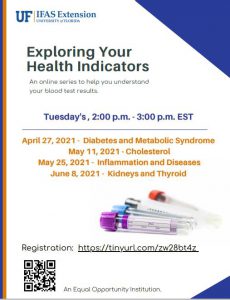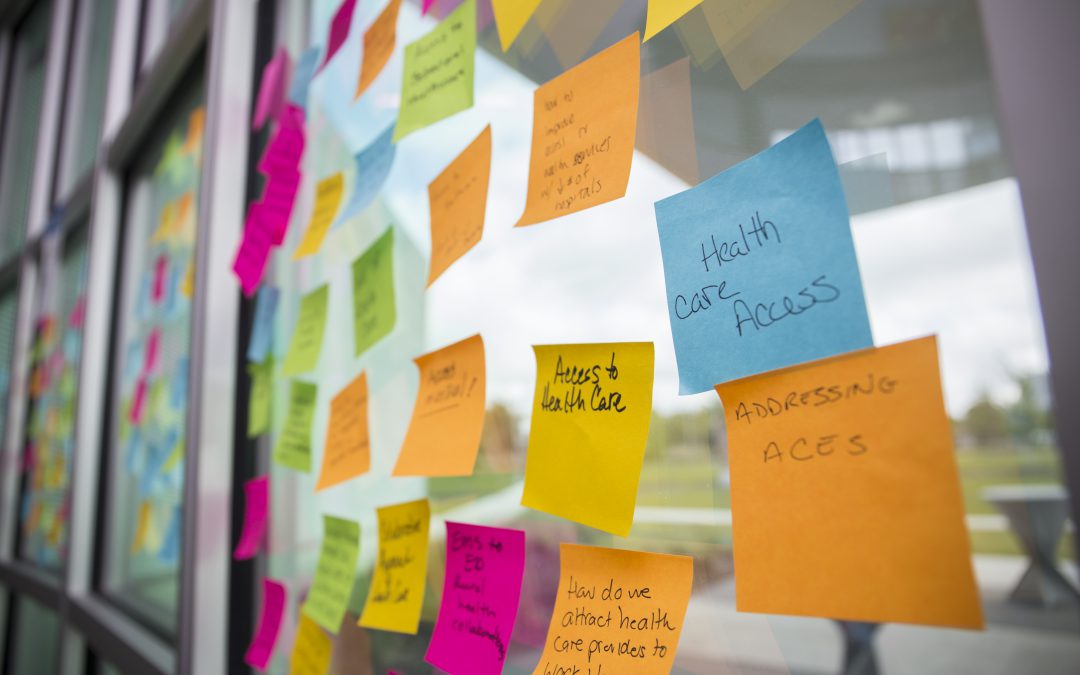
by Claire Davis | Jun 28, 2021
How to Stay Hydrated
Here in the Panhandle of Florida, we are starting to get into the heat of the summer. With temperatures soaring, your sweat is going to start pouring. It is extremely important to replace the fluids lost through sweating. In this article we will cover what hydrated versus dehydrated means, why it is important, and tips on how to stay hydrated in the Florida heat.
What is Hydration, and Why Does it Matter?
Hydration is the process of introducing our body to additional fluid (i.e. water). Dehydration is when you have used or lost more fluid than you are taking in. Your body is unable to continue functioning properly without fluids. Staying hydrated may seem like a difficult task, but it is extremely important for us to stay hydrated for optimal health and performance throughout the day. “Drinking enough water each day is crucial for many reasons: to regulate body temperature, keep joints lubricated, prevent infections, deliver nutrients to cells, and keep organs functioning properly. Being well hydrated also improves sleep quality, cognition, and mood.” (1) Without staying hydrated, we can seriously harm ourselves. Whether you are considered a youth or an adult, you can still lose approximately 40 percent (2) of your body’s water during hard work or exercise.
How to Stay Hydrated
Drink lots of fluids: Do NOT wait till you feel thirsty to drink. By the time you feel thirsty, you are already slightly dehydrated. It is important to drink fluids, preferably water, throughout the day. During the summer, while it is hot, it should be a top priority to replenish lost fluids in our body. A good way to start the day is by drinking a glass of water when you wake up and get your body going. Some fluids are better for us than others. When replenishing fluids lost through sweating, make sure that it is mainly from water. Some of the fluids can also be from flavored water, tea, or coffee. Try not to consume as many sugar-sweetened beverages, as many of them act as a diuretic. The sugar found in these drinks tends to draw the water out of your cells, making you feel thirsty a short time after drinking it. The sugar drawing the water out of cells will also make you need to urinate more quickly, therefore losing even more fluid. Something “punny” – No matter how much soda I drink, I’m still so thirsty… I must be “soda-hydrated!”

Watermelon
Photo Source: UF/IFAS
Eat Fuel Foods: Make sure you are fueling your body with the appropriate foods. Certain fruits and vegetables contain a large amount of water. Examples of water-rich fruits are: watermelon (it’s in the name!), strawberries, peaches, and pineapples. Some examples of vegetables with a high water content are: Cucumbers, leafy green (i.e. lettuce), celery, and tomatoes. Foods that are highly processed tend to be dehydrated and have lots of sugar or salt, which dehydrates you more.
Look at the Weather: Stay inside when it gets too hot outside and when it is extremely humid. The sun is at its peak between 10 am and 2 pm every day, meaning that time is when it will be hottest outside. Plan necessary outdoor activities for the early morning or later in the evening. Also, the higher the humidity, the more you are going to sweat.
How to Dress: Make sure that you dress for the weather, appropriately. Loose fitting clothing allows your skin to breathe, keeping your body cooler. Lighter shades do not absorb the heat like dark colors. Wear a wide brimmed hat to keep your head cool. Also, use plenty of sunscreen. Getting sunburned is not just uncomfortable, it can also increase your skins’ temperature, making it hard to stay cool.
Signs of Dehydration: Be aware of the signs of dehydration. As stated above, do not wait for the signs of dehydration to begin drinking fluids. Some of the signs of dehydration include but are not limited to: dark or smelly urine, vomiting, bad breath, dry mouth, irritability, confusion, and fatigue. If you are dehydrated or have lost a lot of fluid through sweating, vomiting, or diarrhea please seek medical attention.

Water: Drink Up!
Photo Source: Ginny Hinton
Some Tips for Staying Hydrated
I have a hard time getting myself to drink plenty of fluids, so below are a few tips that I try to follow to keep myself properly hydrated.
- Keep a bottle or glass of water by your bed. While you are sleeping, your body is not receiving any fluids, so it is becoming slightly dehydrated. Having water close by the bed means you do not have to get up and disrupt your sleep.
- Purchase a reusable water bottle. If you have a reusable glass or metal water bottle, you can keep it with you all the time. If you have easy access to water, you are more likely to drink it.
- Flavor your water. Plain water can become boring if you drink it all the time. Flavor your water with some fresh fruit or a flavoring packet.
- Try to drink at least 8 glasses of “good” fluids every day. Water is extremely good for you, but you can also consume clear broth, tea, coffee, or sports drinks. This will help prevent water from becoming boring. Just make sure that you limit the intake of caffeine and alcohol.
- Check the color of your urine. Believe it or not, this can be a good indicator as to whether you are hydrated or not. The paler, or clearer, your urine is, the more hydrated you are. If the urine you pass is darker, yellow or even orange, you are more than likely dehydrated.
- Download an app. There are apps on our phones for everything now-a-days. There are apps that can send you notifications to drink more water. Some of these apps are also capable of recording how much you drink.
Staying hydrated is extremely important, especially now that we are facing the “dog-days” of summer. Drink lots of fluids, but do not wait till you feel thirsty. The more that you sweat, the more fluids you need to take in.
Sources:

by Marie Arick | Apr 29, 2021

Openly discuss the physician’s care plan and seek answers to questions.
(Photo source: Tyler Jones, UF/IFAS)
The American Heart Association notes that cholesterol is “not inherently bad” and continues by explaining how cholesterol is necessary to “build cells, make vitamins and other hormones.”
Cholesterol is not only derived from your dietary intake, what you eat, but also your liver makes cholesterol. There are two types of cholesterol, low density lipoprotein or LDL and high density lipoprotein or HDL. The LDL or ‘lousy’ cholesterol contributes to atherosclerosis, the build up of fat in the arteries. The HDL or ‘helpful’ cholesterol aids with removing the lousy cholesterol out of the arteries and taking it to the liver for it to be removed from the body.
Being proactive with one’s health and knowing your numbers, one can better maintain a higher quality of life and potentially suffer less infirmities.
Join us for the upcoming Exploring Your Health Indicators Webinar Series to gain knowledge of your blood tests results. The May 11 program will explore cholesterol. The May 25 program dives into inflammation and diseases. And the June 8 program will wrap the series with kidney and thyroid health indicators. Register once for all the sessions and if you miss a session, a recording of the program will be emailed to you. Invest an hour to gain knowledge that can greatly benefit your health.
Exploring Your Health Indicators Registration: https://tinyurl.com/zw28bt4z
Tuesday, April 27, 2021, 2-3 EST/1-2 CST – Diabetes and Metabolic Syndrome
Tuesday, May 11, 2021, 2-3 EST/1-2 CST – Cholesterol
Tuesday, May 25, 2021, 2-3 EST/1-2 CST – Inflammation and Diseases
Tuesday, June 8, 2021, 2-3 EST/1-2 CST – Kidneys and Thyroid


by Laurie Osgood | Apr 1, 2021
 April is designated as National Financial Literacy Month to increase awareness about financial literacy, especially with the Coronavirus (COVID-19) causing economic worry for families across the United States. When it comes to financial literacy, knowledge is power!
April is designated as National Financial Literacy Month to increase awareness about financial literacy, especially with the Coronavirus (COVID-19) causing economic worry for families across the United States. When it comes to financial literacy, knowledge is power!
Consumer debt has become a major challenge for families. If you owe money to multiple creditors, managing this debt can be overwhelming. Many Americans have more debt than they can afford to pay. Developing strategies for overcoming this challenge is essential. These strategies should include building financial knowledge, developing a budget, and setting savings goals to improve your financial outlook.
Financial literacy means understanding how to save, borrow, invest, and care for your money, leading to greater financial well-being. Research has shown that our physical health and well-being are directly linked to our financial health and well-being.
Florida Saves is a statewide initiative that helps inspire Florida families to set savings goals, lower debt, and build personal wealth. The Florida Saves pledge, located on the Florida Saves website, can help us establish personal financial goals. With this pledge, you’re making a commitment to work toward a savings goal, such as college tuition, an emergency fund, or down payment on your first home. Visit the Florida Saves Initiative website to learn more about financial literacy.
Whatever your savings goals are, becoming financially literate can help you achieve those goals. For more information about financial literacy and management, please contact your local UF/IFAS Extension Agent.
Extension classes are open to everyone regardless of race, creed, color, religion, age, disability, sex, sexual orientation, marital status, national origin, political opinions, or affiliations.

by Julie McMillian | Apr 1, 2021
Have you thought about your mental and emotional health lately? If you haven’t, it’s a great time to take some time to invest in you. Emotional wellness is the ability to handle and overcome challenges and obstacles that we often must deal with in everyday life. It doesn’t mean you will always be happy, but you are aware of and in control of your thoughts, behaviors, and actions when you have negative feelings or setbacks. Research shows that emotional health is a skill. There are many ways to improve and maintain your emotional health so you can adapt to changes as they happen.
Tips for Emotional Wellness:

Spend time with loved ones to strengthen your relationship.
Photo credit: UF/IFAS
- Stay positive. Purposely develop a positive mindset and hold on to the positive emotions and appreciate the good times as long as you can. Focus on your outlook. Ask yourself: What gives me inner peace? What gives me purpose? Remember to forgive yourself and others for making mistakes.
- Reduce stress. Stress can push you to your limits. It can also motivate you with a rush of energy when needed. It is important to eliminate long-term stress, if possible, and strive for balance. Learn what relaxation techniques work best for you. Deep breathing, meditation, and exercise are healthy ways that could provide release. Set priorities and don’t be afraid to ask for help when needed.
- Take care of your physical health. Plan to eat healthy meals, get enough rest, and exercise. Your physical health directly relates to your mental health. There are so many things we want to fit into a day but there’s not always enough time. Establish set times to help keep you on track. Avoid too much caffeine, alcohol, and stimulants, especially late in day when it could affect your nighttime routine.
- Strengthen your relationships. Build strong connections with your partner, family, friends, neighbors, and co-workers. These social relationships help us to find purpose and meaning. Join a group focused on a favorite activity or hobby. Take a class and learn something new. Volunteer in your community and share positive habits with others. Others can have powerful effects on our health and link us to opportunity.
- Think before you act. Be aware of your emotions and reactions so you can harness them when you are triggered, or something is bothering you. Notice what makes you happy, sad, or mad, and take a few minutes to think before you address or try to change a situation. It’s okay to express your feelings to others and not keep everything within. We must be mindful of how it comes across or affects the other person. Take a walk or some deep breaths and allow yourself to process during a difficult time.
How you feel can affect your daily activities and relationships. People who have good mental health can still have mental illness, so remember to consult your doctor for ongoing concerns. There could be chemical imbalances that need the right kind of treatment. There are also counseling and support groups that can help when you need extra support. It’s up to you to start making healthy choices and taking control of your overall wellness. I hope you feel encouraged and take steps to develop resilience in the face of adversity. For more information on healthy living or other Extension-related topics, you can contact your Family and Consumer Sciences Extension Agent at your local UF/IFAS Extension Office.
Sources:
https://www.nih.gov/health-information/emotional-wellness-toolkit
https://edis.ifas.ufl.edu/topic_mental_health

by Angela Hinkle | Mar 31, 2021

No sleep at night, tired at work.
Photo Source: E. Mudge
Experiencing sleeplessness? You’re not alone. Keep reading for things you can do to help you sleep well.
On average, Americans get less than seven hours of sleep a night. The hormone melatonin regulates the rhythms of our daily biological “clock,” which includes an optimum 7-9 hours of sleep per night. Unfortunately, there are oh so many, many things that inhibit that melatonin from doing its job correctly.
And when this rhythm breaks down, our overall health is at risk. Lack of proper sleep has been shown to increase risk for illnesses like heart disease and diabetes, as well as learning disabilities and mental illnesses like dementia.
So, what is keeping us from sleeping well?
Who has time to sleep?
There is so much work and fun to be done in a 24-hour day, that we often shelve sleep to lowest priority. “If I can get another hour’s worth of work done, I’ll catch up on sleep later” seems to be the modern mantra.
All those lights are great, but…
The bluer the light, the more it messes with our bodies’ cues to sleep. A candle flame with no blue light – no problem. Tablets and smart phones and televisions with lots of blue light can disrupt our sleep by about 60-95 minutes.
To sleep well, try some or all of these tips:
- Make sleep a priority. Schedule it as part of your regular routine. Try to go to sleep at the same time every night.
- Sleep with a night light that has a red light bulb. (Don’t put a red scarf over your lamp shade. This is a fire hazard.)
- No caffeine after noon (from coffee, tea, chocolate, etc.).
- Take a warm, soothing bath or shower within an hour of going to bed.
- Try Epsom salts in the bath and calming lavender, sandalwood, or juniper scents in the bedroom.
- Drink a cup of warm tea with valerian extract (a common ingredient in “sleepy” teas).
- Set your thermostat to a cool 62° to 69° during sleep time.
- Sleep on freshly laundered sheets.
- Turn off electronic devices at least one hour prior to bedtime.
- Stop eating at least two hours before bedtime.
Though it may seem like we need to go full speed ahead 24-7, we just can’t. And we should stop trying. We need good rest and sleep to help our body recuperate from the day.
So, try some or all of the techniques above to sleep well. Let me know how it goes. Zzzzzz.
For more information on sleep and your health, see what the CDC has to share Are You Getting Enough Sleep?












